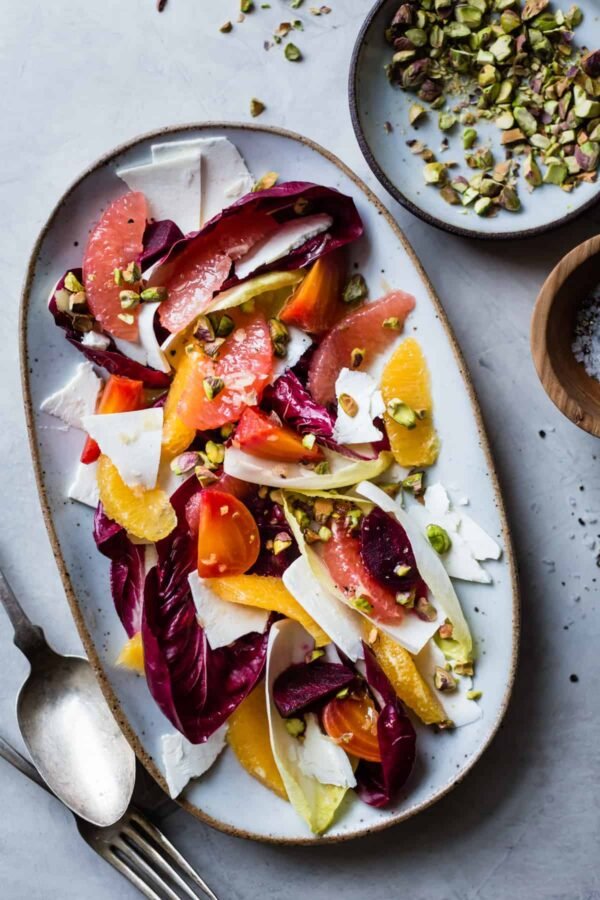
REVEALED: Swapping From Coke to Diet Coke Has No Effect on Weight Loss
8 Swaps you could be making for long-term results

Replacing sugar with artificial sweeteners used in Diet Coke and other soft drinks has no effect on weight loss and their long-term health effects are still poorly understood, found a major scientific review. We spoke with our experts who provided us with their top tips to help you achieve healthy, long-term weight loss, which can be maintained…
1. Fad diets & quick fixes –> Healthy eating
Detoxing may often lead to feelings of lethargy, headaches, confusion, malaise, hunger pains, low mood and low productivity. Cellular water loss occurs, resulting in temporary weight loss, which for most people returns once eating normally. Nutrition and nourishment are also absent and therefore a detox is not the healthiest option.
“Choose an eating plan that limits processed, high fat sugary foods, avoid obvious ‘toxic’ culprits like caffeine, alcohol and tobacco. Where possible, have organic nutrient dense, pesticide free vegetables, occasional fruit and fibrous whole grains. Focusing on an unprocessed balanced diet and lifestyle, with time for exercise, quality sleep and adequate hydration is a better option in the long run,” explains Nutritionist, Alix woods.
2. White –> Wholemeal
Dr Marilyn Glenville, the UK’s leading Nutritionist (glenvillenutrition.com) suggests, “Swapping to whole grain alternatives that release energy slowly. The carbohydrates in wholemeal bread are broken down slowly over several hours and so do not give any sudden flooding of sugars into the bloodstream. Also, this gradual release helps you to feel fuller for longer, suppressing your appetite and stopping you craving sweet foods because you are not on the blood sugar rollercoaster.”
3. Bread sticks –> Carrots
We should actually be eating more vegetables than fruit! We’ve all been told to ‘eat our greens’ but it is actually better to eat a rainbow of fruits and vegetables because different antioxidants are found in differently coloured foods. “Green leafy vegetables, berries, carrots, beetroot and so on all contain different antioxidants” explains Dr Glenville. A simple way to increase your vegetable intake could be dunking carrots, instead of bread sticks, into your hummus.
4. Shop bought juices –> Beetroot home-made smoothie
Beetroot is a low calorie, fat free vegetable, which is full of energy promoting nutrients that can help give us a lift! “Beetroots can be added to smoothies and or juices and have been found to increase plasma nitrate levels, which increase stamina and physical performance- helping one to lose weight,” explains Alix Woods.
5. High carb intake –> High fat intake
A Ketogenic diet, popular with the Kardashians, works with low carb and high fat intake, allowing easy access to fat stores that will burn this excess body fat for energy.
“The Ketogenic diet is a high fat / low carbs diet with medium intake of protein. There are many health benefits of following a Ketogenic diet and it also has plenty of solid research backing up its benefits. In fact, it has been found to be better than most diets at helping people with high blood pressure, heart disease, fatty liver disease and obesity,” explains Nutritionist at Natures Plus (www.naturesplus.co.uk), Michela Vagnini.
“Even if you are not at risk from any of these conditions, the ketogenic diet can be helpful for you too. Some of the benefits that most people experience are; a decrease in inflammation, an increase in energy, improved body composition and reduce fat mass, especially around the middle.”
6. Crisps –> Spice up and snack on kale
“Kale is a member of the brassica family and is extremely nutrient dense with high levels of beta carotene (Vitamin A), Vitamin C, Vitamin K and minerals Calcium and Magnesium. It’s full of powerful antioxidants like flavanoids, quercetin and kaempferol, which protect the heart, are anti inflammatory, and anti viral. Kale is best served lightly steamed, drizzled with olive oil and a sprinkle of Himalayan salt,” recommends Alix.
7. Sweets everyday –> Apple a day
Eat fruit as a healthy snack! “Although fruit contains natural sugars, most have a low to moderate glycaemic index and do not raise blood glucose levels excessively (though don’t over-indulge in dried fruits). A study involving 38,000 women found those eating at least one apple a day were 28% less likely to develop type 2 diabetes than those eating no apples. Meanwhile, a recent analysis of five trials, involving almost a quarter of a million people, found that regular consumption of apples and pears is associated with an 18% reduced risk of type 2 diabetes,” advises dr. Sarah Brewer, working in association with CuraLin Diabetes supplement (www.curalife.co).
8. Fast food fix –> A wholesome and tasty itsu meal
Considering incorporating more meat-free dishes into your life? itsu’s got you covered with their ‘losing your vegan’ity’ bento box (£4.99, available nationwide throughout January). “The Red Cabbage has recognised anti-ageing properties as it is brimming with antioxidants, vitamins A and C, which minimise the effects of free radicals caused by sun damage, pollution, unhealthy eating and stress. The (Red) Ginger is a versatile spice packed with antioxidants and anti-inflammatory properties; it is effective in treating chronic indigestion and associated symptoms of wind and stomach pain. It has also been proven to be cardio protective as it lowers LDL cholesterol and triglycerides in the blood. Finally, Broccoli is a cruciferous green vegetable full of vitamins, minerals, fibre and antioxidants making it a super healthy addition to our diets,” explains nutritionist Alix Woods.












































